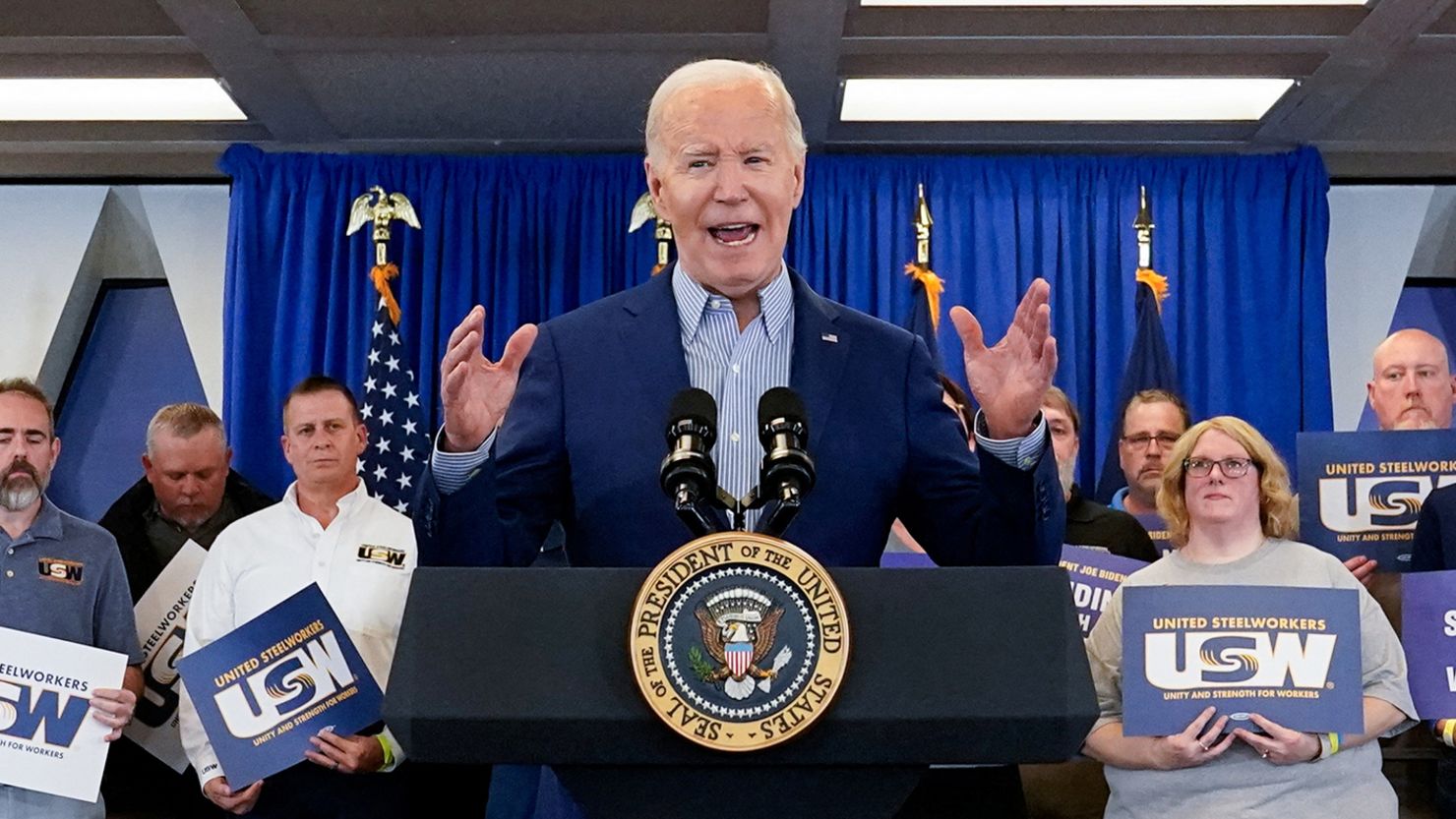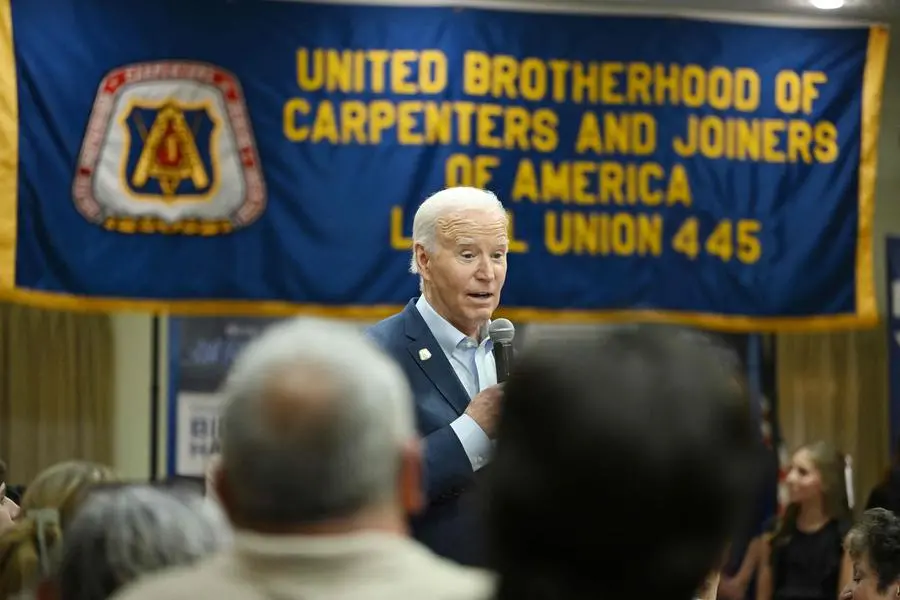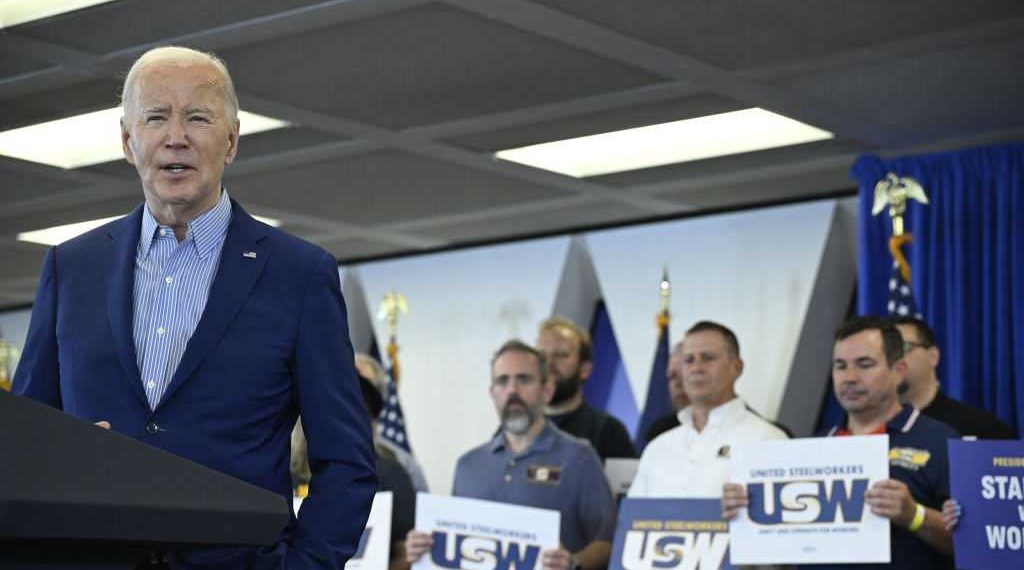President Joe Biden has announced plans to increase tariffs on Chinese metal imports, particularly targeting steel and aluminum products, in a bid to bolster support for steelworkers in Pennsylvania, a significant swing state.
The proposed tariffs would raise rates to 25%, a significant escalation from the current levels set by the Trump administration.
Biden’s move underscores his commitment to prioritizing domestic industries and addressing unfair trade practices, albeit at the risk of exacerbating tensions with Beijing.

During a campaign event in Pittsburgh, Biden emphasized the need to counter what he sees as China’s unfair trade practices, accusing Chinese steel companies of “cheating” rather than competing fairly.
The proposed tariff hike, expected to affect over $1 billion worth of imports, reflects Biden’s efforts to fulfill promises made to blue-collar workers, a key demographic in his reelection bid.
The Biden administration is also exerting pressure on Mexico to prevent the indirect sale of Chinese metal products to the United States through its territory.
Investigations into Chinese trade practices in sectors like shipbuilding and maritime industries are underway, potentially paving the way for further tariffs.
While Biden’s tariff proposal aims to protect American jobs and industries, it risks retaliation from China, further escalating tensions between the two economic superpowers.

China’s embassy in Washington has condemned the move as unilateral and protectionist, echoing concerns raised during the Trump administration’s tariff disputes.
Both Biden and his Republican opponent have shifted away from the previous free-trade consensus, adopting more protectionist stances.
Biden’s latest tariff proposal aligns with his broader campaign strategy to secure support from union leaders and blue-collar workers, important voting blocs in swing states like Pennsylvania, Michigan, and Nevada.





